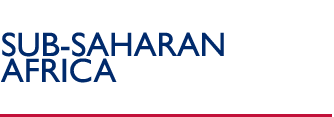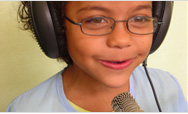
Malawi
USAID/Malawi launches Interactive Radio Instruction

Malawi’s education system struggles with large class sizes, limited supplies, and insufficiently
trained teachers. The USAID-supported Tikwere interactive radio instruction project is part of an
effort to improve the teaching and learning conditions for over 3 million pupils in the primary
schools. [more].
OVERVIEW
Malawi is one of the 20 poorest countries in the world. More than half of its people survive on less than a dollar a day, and the average Malawian lives only 37 years due to HIV/AIDS, malaria, and malnutrition.
USAID has provided assistance to Malawi since the early 1960s-totaling more than $1 billion through 2008. The substantial program provides about $80-100 million a year in development assistance, which is implemented with an integrated strategic approach. USAID primarily focuses on promoting Malawi's political and economic development, improving the delivery of and access to health services and education, decreasing the country's dependence on humanitarian assistance, and increasing its ability to make positive contributions to security in the region, and in the global community more broadly.
PROGRAMS
GOVERNING JUSTLY AND DEMOCRATICALLY
Since 2003, USAID's strategy has focused on reducing corruption, improving fiscal management, supporting election processes, and strengthening the role of civil society. The flagship activity was the USAID-implemented Millennium Challenge Corporation Threshold Program, which came to an end in September 2008. Currently, USAID is focusing on the May 2009 national elections. USAID has provided funding to the United Nations Development Program elections basket fund, which is managing donor support to the Malawi Election Commission. These funds are dedicated to the training of election officials and providing voter and civic education.
INVESTING IN PEOPLE: HEALTH
USAID aims to improve access to quality health care and encourage the development of strong health policies, planning, and management. Under the President's Emergency Plan for AIDS Relief, activities promote treatment, offer care and support for people living with HIV/AIDS, and the develop programs to reduce new infections. USAID programs also fight malaria through the President's Malaria Initiative, combat maternal and child mortality, improve reproductive health, reduce tuberculosis, and strengthen the overall national health care system. Improved health not only leads to a better quality of life, but also increases family income and economic growth in Malawi.
INVESTING IN PEOPLE: EDUCATION
While access to education has improved in Malawi since primary school fees were eliminated in 1994, the poorest students still face access constraints and quality still must be improved. USAID builds and reinforces education professional development skills and capacity, provides technical assistance to help streamline and strengthen education management information systems, promotes the role of communities and their abilities to mobilize resources for improvement, and supports educators' attendance at programs in the United States.
ECONOMIC GROWTH
Agriculture is the engine of Malawi's economic growth, so USAID focuses primarily on agricultural development while incorporating elements of natural resource management and micro-enterprise. USAID aims to increase the productivity and competitiveness of the agricultural sector, increase incomes, reduce food insecurity through targeted food aid, increase access to credit, and promote viable economic alternatives to destructive environmental practices. Additionally, American resources strengthen the Malawian government's disaster readiness through support to the Famine Early Warning System Network.
Back to Top ^
|


